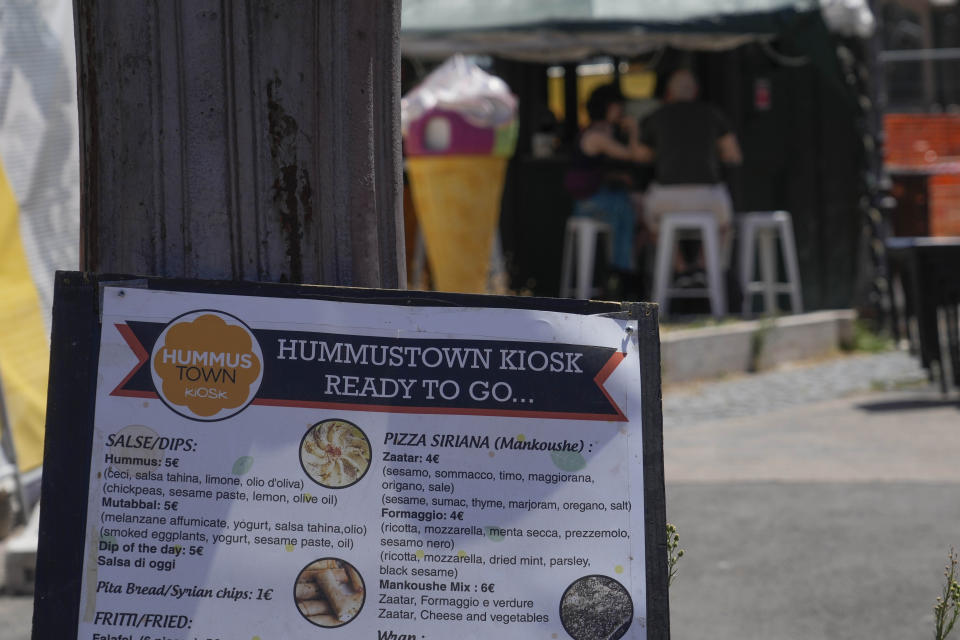How Two Syrians in Rome Are Using Hummus to Aid War Refugees and Help Migrants Integrate
In the heart of Rome, a unique initiative is blossoming, led by two resilient Syrian women who are transforming the lives of migrants and refugees through the universal language of food. Shaza Saker and Joumana Farho, both deeply affected by the ongoing Syrian civil war, have created HummusTown, a community-driven project that not only serves delicious hummus but also fosters integration and support for vulnerable populations in Italy.
A Humanitarian Vision
Founded in 2018, HummusTown began as a “humanitarian catering service” aimed at raising funds for families and friends still suffering in Syria. The idea was born out of a desire to help those back home while also creating a sense of community in their new environment. Shaza, a seasoned U.N. employee, and Joumana, her talented cook, started inviting people over for dinner, turning Shaza's home into a makeshift restaurant. “We felt useful,” Shaza recalls, as they raised funds through these gatherings to send back to Syria.
Growth and Impact
What started as a small initiative has blossomed into a successful small business. HummusTown now employs 13 full-time and 10 part-time staff members, operating from a kitchen kiosk near Rome's train station and a small bistro. Their mission has evolved from merely sending remittances to actively helping new migrants integrate into Italian society. The duo has expanded their offerings to include cooking classes, cultural events, and catering services, all while gaining a loyal following in Rome’s gastronomic scene.
Each month, HummusTown donates food to the homeless, and in the wake of the devastating earthquakes that struck Syria in February 2023, they raised an impressive 40,000 euros to support victims. This commitment to humanitarian aid has solidified their reputation as a beacon of hope for many.
A Support Network for Refugees
As the influx of refugees into Rome increased, Shaza and Joumana recognized the need to provide more than just food. They shifted their focus to creating a support network for Syrian asylum-seekers and other vulnerable individuals, including Italians. Among those they have helped is Mayyada al-Amrani, a Palestinian woman who fled Gaza with her daughter, who is undergoing cancer treatment. Mayyada now rolls traditional spiced rice into grape leaves, earning a living while worrying about her other children still in Gaza.
Fadi Salem, a Syrian refugee from Damascus, found his way to HummusTown after arriving in Rome in 2022. He describes the organization as a family, providing him with a sense of belonging and a platform to practice his language skills. “I found integration through HummusTown instead of finding it through the migration centers,” he shares, highlighting the importance of community in the integration process.
Conclusion
HummusTown stands as a testament to the power of food in bridging cultures and fostering community. Through their dedication to helping others, Shaza and Joumana have not only created a thriving business but have also built a support network that uplifts migrants and refugees in Rome. Their story is a reminder that even in the face of adversity, compassion and community can create meaningful change.
